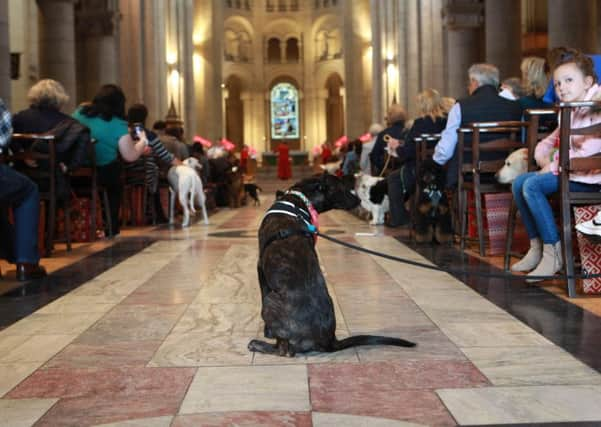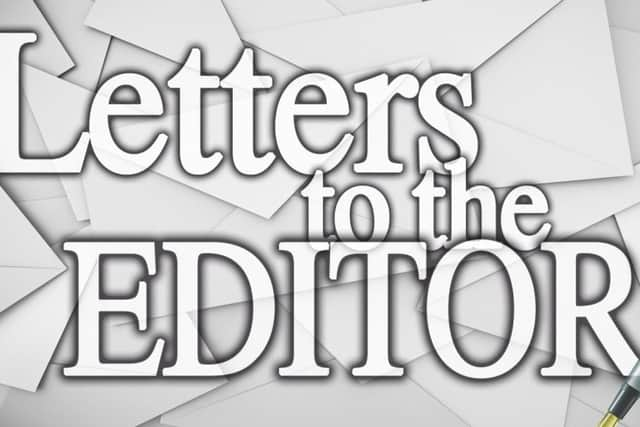Pets distract from a solemn subject


While reflecting on ‘the important place animals play in our lives’, I hope Canon Niblock urged his congregation to seek ‘first the kingdom of God, and His righteousness’.
Our worship should be of the Creator, not the creature.
It is reported that the choir sang Psalm 8. The beginning and ending of this Psalm reveal the true reason for God’s creation, that we might praise the excellent name of the ‘LORD our Lord’, not our pets!
Advertisement
Hide AdAdvertisement
Hide Ad

Hopefully the reading from Genesis ch 1 did not omit reference to the crowning glory of God’s creation, man, who was to have dominion over fish, fowl and every living thing. The clear distinction between man and animals is stated in Genesis ch 2 v 7 when God breathed into ‘his nostril’s the breath of life, and man became a living soul’.
Hopefully there was time to pause and remember how Adam sinned, death passed upon all men and God provided a Redeemer to make atonement for our sin at Calvary. Surely, on such a solemn subject, the presence of four legged friends would have only served as a distraction!
If the Lord Himself had been present, would His reaction still have been the same as when He was confronted by oxen, sheep and doves in the temple?
Robert McFarland,


Dungannon
When I was at school in Munster, I was taught ‘Gaeilge’ and during these classes, I learned of the several different dialects of this language spoken on this island, the commonly known dialects being of Ulster, Connamara and Munster.
Advertisement
Hide AdAdvertisement
Hide AdI have tried to converse with Ulster speakers of Gaeilge but to no avail as the accentuation is very different. However, I’ve also realised in attempting to converse with Scottish speakers, that Scottish Gaelic is phonetically more in common with the Eastern Ulster dialect than the Munster dialect. This make senses as there is ample historical evidence to suggest it was the language of kingdoms spanning the North channel in times past.
It is more appropriate to refer to the historical language of Eastern Ulster as ‘Ulster Gaelic’ rather than Irish. Referring to it as Gaelic more appropriately reflects the heritage of the North-East. There are also phonetic and linguistic distinctions between East Ulster Gaelic and the Donegal dialect.
It matters that those who are interested in these languages study the dialect of the language unique to their part of these islands for there is a linguistic connection between their ancient tongue and their local dialect of English that they speak.
This means that the ‘regional’ Gaelic language should more easily be learned. For the North-East, the study of Scottish Gaelic is arguably better suited to do the job than the language codified by the Irish state in the 20th century as the Irish state language is mainly based on Munster Gaeilge. Ulster Gaelic died out as a dialect but could be brought back as a living language were people willing to engage with it and would be best suited to enthusiasts in the North-East.
Advertisement
Hide AdAdvertisement
Hide AdAnd while Munster and Ulster speakers of our ancient tongue may struggle to understand each other, we can always fall back on English to discuss the similarities and differences!
Thomas P. O’Brien
Coalisland, Dungannon,
Co. Tyrone